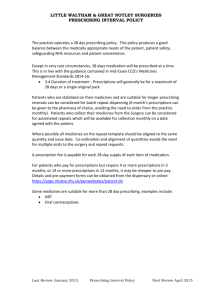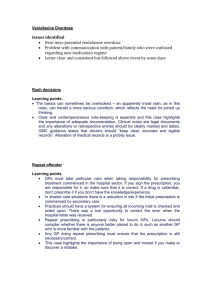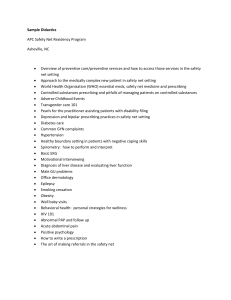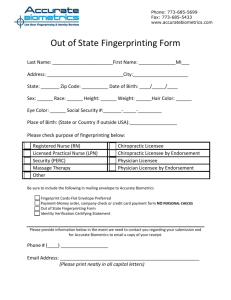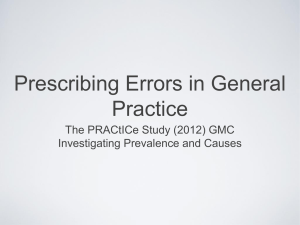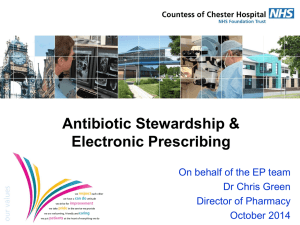Contact with patients before prescribing
advertisement
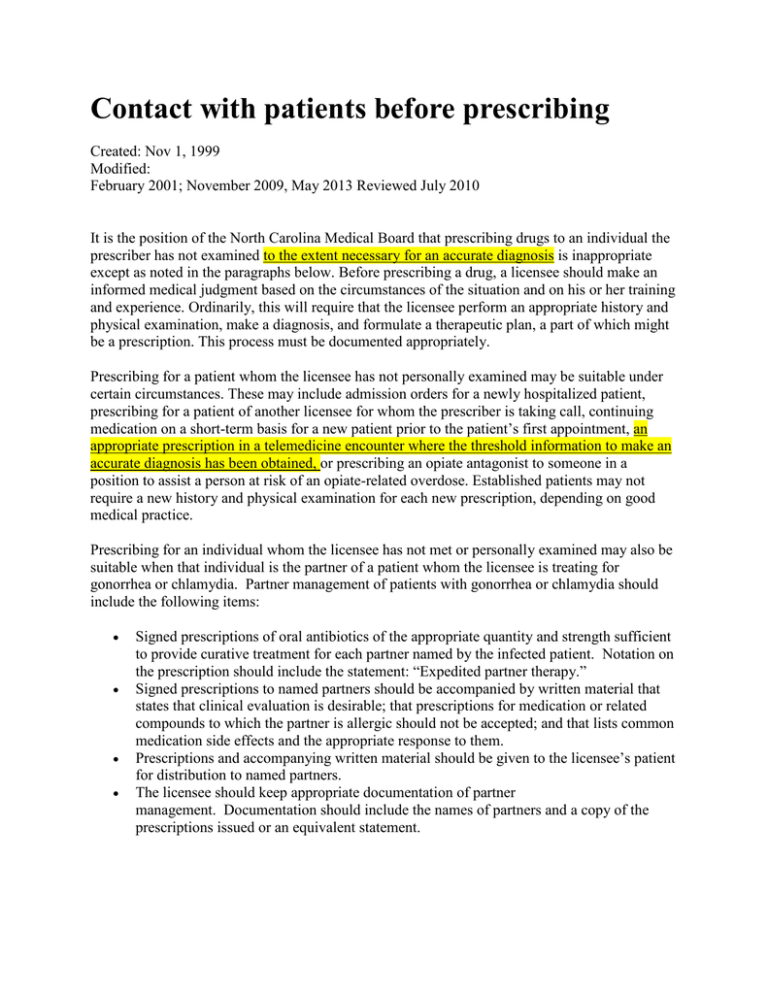
Contact with patients before prescribing Created: Nov 1, 1999 Modified: February 2001; November 2009, May 2013 Reviewed July 2010 It is the position of the North Carolina Medical Board that prescribing drugs to an individual the prescriber has not examined to the extent necessary for an accurate diagnosis is inappropriate except as noted in the paragraphs below. Before prescribing a drug, a licensee should make an informed medical judgment based on the circumstances of the situation and on his or her training and experience. Ordinarily, this will require that the licensee perform an appropriate history and physical examination, make a diagnosis, and formulate a therapeutic plan, a part of which might be a prescription. This process must be documented appropriately. Prescribing for a patient whom the licensee has not personally examined may be suitable under certain circumstances. These may include admission orders for a newly hospitalized patient, prescribing for a patient of another licensee for whom the prescriber is taking call, continuing medication on a short-term basis for a new patient prior to the patient’s first appointment, an appropriate prescription in a telemedicine encounter where the threshold information to make an accurate diagnosis has been obtained, or prescribing an opiate antagonist to someone in a position to assist a person at risk of an opiate-related overdose. Established patients may not require a new history and physical examination for each new prescription, depending on good medical practice. Prescribing for an individual whom the licensee has not met or personally examined may also be suitable when that individual is the partner of a patient whom the licensee is treating for gonorrhea or chlamydia. Partner management of patients with gonorrhea or chlamydia should include the following items: • • • • Signed prescriptions of oral antibiotics of the appropriate quantity and strength sufficient to provide curative treatment for each partner named by the infected patient. Notation on the prescription should include the statement: “Expedited partner therapy.” Signed prescriptions to named partners should be accompanied by written material that states that clinical evaluation is desirable; that prescriptions for medication or related compounds to which the partner is allergic should not be accepted; and that lists common medication side effects and the appropriate response to them. Prescriptions and accompanying written material should be given to the licensee’s patient for distribution to named partners. The licensee should keep appropriate documentation of partner management. Documentation should include the names of partners and a copy of the prescriptions issued or an equivalent statement. It is the position of the Board that prescribing drugs to individuals the licensee has never met based solely on answers to a set of questions, as is common in Internet or toll-free telephone prescribing, is inappropriate and unprofessional.
